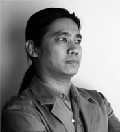Why Independent Media Matters in Burma
 |
King Mindon, Burma’s penultimate monarch, knew the value of a free press. During his reign (1853-78), he introduced a new press law, which read in part: “If I do wrong, write about me. If the queens do wrong, write about them. If my sons and my daughters do wrong, write about them. If the judges and mayors do wrong, write about them. No one shall take action against the journals for writing the truth. They shall go in and out of the palace freely.”
The king and his ministers read newspapers published in Lower Burma, which had already been colonized by the British, and were quite sensitive to criticism. When newspapers like the Rangoon Gazette reported the poor state of roads in Mandalay, Mindon’s seat of power, the ministers immediately ordered that the roads be repaired.
However, despite the king’s embrace of a free media, criticism of palace scandals in the royal court of Mandalay never made its way into the Yadanabon Naypyidaw, launched with Mindon’s blessings in March 1875.
The Yadanabon Naypyidaw, or Mandalay Gazette, as it was also known, is recognized as one of the first indigenous newspapers in Southeast Asia, and the law which led to its creation was also among the first of its kind in the region.
Burmese are justifiably proud of this accomplishment, and to this day, advocates of press freedom in Burma cite Mindon’s example as evidence that truly enlightened leadership is indeed possible in the country, despite the reputation of its current rulers who are regarded by the international community as enemies of the press.
As Burma’s military regime prepares for a constitutional referendum in May and an election in 2010, the exiled media continues to play a key role in ensuring that the Burmese people and the rest of the world are informed about developments inside the country.
If sudden or gradual change comes to Burma, exiled journalists must be prepared to safeguard their independence. There is no guarantee that change at the top will bring democratic values, good governance or the rule of law, so the press must be vigilant and work to hold the government accountable.
If new government ministers and opposition politicians embraced a free and independent press, it would be welcome news; but this is not something that can be taken for granted. Even if democratic opposition forces and the winners of the 1990 elections assumed power, it would be naive to expect a friction-free relationship between politicians and the press beyond an initial honeymoon period.
The independent media must act as a watchdog, not a lapdog. This means that exiled media groups founded by former activists and students may find themselves at odds with a future democratic government of Burma.
At this critical juncture, dissidents and Burma’s independent press agree on the urgent need for political change. But when change comes to Burma and democratic opposition groups take power, a new dynamic will evolve. The question is—will “democratic forces” respect press freedom?
During a recent conference held by the Democratic Voice of Burma in Bangkok, the debate on independent media went further. Some exiled politicians were against the DVB becoming an independent radio and TV station and advocated the opposition movement retaining the DVB, which was born out of the opposition groups in exile in 1992 and has mostly operated under the guidance of the National Coalition Government of the Union of Burma.
Exiled politicians accuse the exiled media of not doing enough to report on the movement inside and outside the country. In fact, the exiled media and international media consistently and extensively report on political events in Burma. Ironically, it is mostly the politicians and activists in exile who have failed to articulate the pro-democracy movement.
The concern shared among professional journalists in exile is that even if change comes to Burma and exiled politicians win power, the status and safety of journalists will still be a source of concern.
Many Burmese opposition groups and politicians see the media as a tool to counter the regime.
1 | 2 next page »
